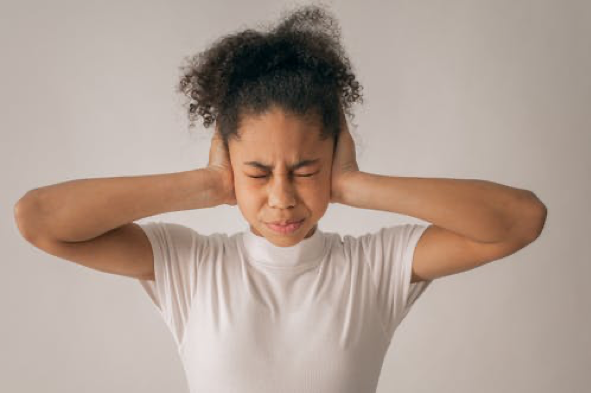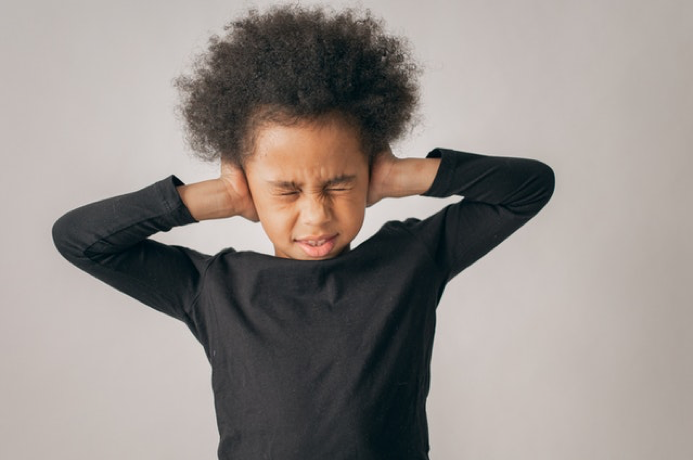You may benefit from tinnitus sound therapy to help manage and treat your tinnitus symptoms. Tinnitus is a sound disorder that involves ringing, buzzing, and similar types of sensations in one or both of the ears of the affected person. It is a common medical problem that affects millions of people every year. It’s a fact that tinnitus usually affects older people because they are vulnerable to an array of health problems and disorders.

(Source)
Tinnitus is a persistent condition that is rarely curable through constant treatment. If you have tinnitus, you might already know that ringing or buzzing sensations can be frequent and intermittent. Moreover, they vary in loudness from high to low pitches. When the sensations or tinnitus noises occur in sync with your pulse, experts regard it as pulsatile tinnitus.
However, many treatment options aim to reduce the adversity and impact of the noises that occur due to tinnitus. They aim to alleviate the discomfort due to tinnitus. Nonetheless, we will focus primarily on tinnitus sound therapy in this article.
What Conditions & Illnesses Can Lead to Tinnitus?
Here are some of the most general causes of tinnitus that also include health conditions:
- Meniere’s disease damages the inner parts of the ears, which may lead to tinnitus.
- Specific kinds of prescription drugs and medication also hurt cardiovascular health and parts of the ear, which leads to the manifestation of tinnitus symptoms.
- Excessive ear wax buildup can cause infections and in rare cases, benign tumors, which usually affect the auditory nerves. This causes irregular electric impulses to the brain resulting in tinnitus.
- Elderly people are susceptible to a high range of health problems as their body cells and organs weaken. The same goes for healthy parts of the inner and middle ears.
- Stiffening of the minute bones in the inner ear (otosclerosis) leads to tinnitus since the sound conduction no longer remains efficient.
- Injuries to sensitive parts of the head and neck can lead to deterioration of the blood vessels within. Hence, there are high chances of experiencing tinnitus and tinnitus episodes.
- High blood pressure and cholesterol disorders can weaken blood vessels which damage the sound-sensitive organs in the ear.
Tinnitus Sound Therapy
Currently, there is no permanent cure to treat tinnitus or any of its rare or common types. Nearly all treatment options emerge from the field of ENT and pertain to reducing the symptomatic effects of tinnitus and associated health problems. However, among the various types of treatments and remedial approaches to tinnitus, sound therapy is one of the most sought-after and successful practices.
The first thing to know about tinnitus sound therapy is that it involves an expert audiologist who can handle and deal with multiple hearing and audio devices. These include hearing aids, masking devices, noise-blocking devices, and similar types of machines.
Tinnitus is an internal sound that occurs due to musculoskeletal and cardiovascular movements. Hence, it produces non-auditory sounds. Therefore, counteracting the noise symptoms of tinnitus with the use of external sound devices can help. To sum up sound therapy for tinnitus, you should know that your doctor will instruct you to wear the most effective noise blocking or reducing device in conjunction with relieving and directive counseling.
While sound masking devices will block unwanted external noises and tinnitus sounds to allow you to focus, directive counseling will enable you to conduct a transparent and non-bothersome thought process with as little awareness of the tinnitus issues as possible. Often, experts suggest that you use external sound devices to drown out the tinnitus sounds, making them seem less disturbing. This could include sounds of rain, wind, and others.

(Source)
Mechanisms of Actions for Tinnitus Using Sound Therapy
There are 4 primary action mechanisms in the tinnitus sound therapy treatment. Here are all 4 of them in a brief and comprehensible manner.
Masking
This involves the doctor or audiologist exposing you to external sounds. These sounds are loud enough to cover the tinnitus noises of a person, either partially or entirely.
Diversion
This mechanism refers to the distraction that the external sound causes, making the patient less aware of the tinnitus sounds.
Habituation
This is a form of directive therapy that aims to reclassify tinnitus sounds in the brain of the patient. Accurate guidance helps patients overlook tinnitus noises such as ringing or buzzing as neural signals.
Neuromodulation
This is a complex mechanism that involves using specialized sounds to reduce neural hyperactivity that experts believe is the origin of tinnitus.
Tinnitus Sound Therapy: Conclusion
If you are in search of the best tinnitus specialist near you, contact Tinnitus Cognitive Center™. Dr. Stephen Geller Katz, LCSW-R, provides individualized attention to all his patients and caters to the treatment of different ENT disorders, including tinnitus and its rare types.
To schedule an easy, online tele-appointment with us, call 646-213-2321. We offer compassionate and reliable healthcare services to all the patients seeking to alleviate the stress and anxiety caused by sound disorders such as tinnitus.
Reference Links:
https://www.ata.org/managing-your-tinnitus/treatment-options/sound-therapies
https://www.webmd.com/a-to-z-guides/understanding-tinnitus-basics
https://emedicine.medscape.com/article/856916-overview
https://www.ncbi.nlm.nih.gov/pmc/articles/PMC4134891/

[…] smartphone apps offer customizable sound therapy options. These apps provide a wide range of soothing sounds, allowing users to find the sounds that […]